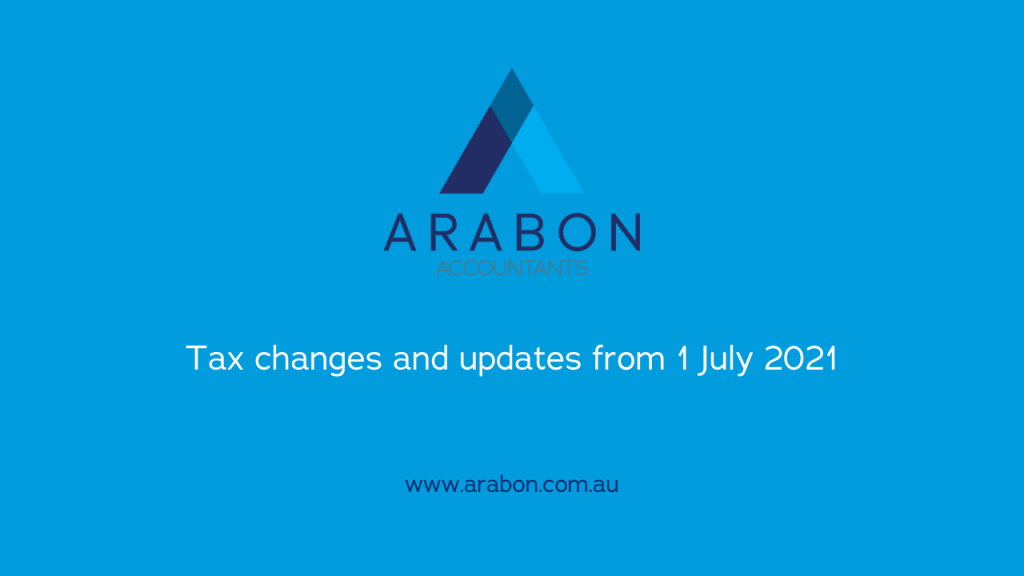The new financial year has arrived and so has several updates to the tax system and new policies impacting superannuation, healthcare, wages and tax rates. Here’s what you need to know post 1 July 2021.
Superannuation payments to increase
Working Australians will receive a 0.5% boost to their superannuation fund. Legislation requires superannuation contributions to increase from 9.5% to 10% rising 0.5% annually until 12% is reached in 2025.
For the average Australian, this means an extra $6.50 of their income will be put into super each week, making them about $19,000 better off in retirement as a result, according to estimates by the Association of Superannuation Funds of Australia.
However, some workers paid on a “total package” basis, meaning their salaries are inclusive of super, could see their take-home pay fall to fund the increase in super payments.
Furthermore, the rule stating workers who earn less than $450 a month who currently don’t receive superannuation is set to be scrapped. This means regardless of how much you earn, you’re now entitled to earn super.
Separately, the government will launch an online comparison tool in July to encourage Australians to switch out of underperforming superannuation funds.
The introduction of the YourSuper tool will be accompanied by a suite of other changes, including an increase in the number of people eligible to join a self-managed super fund from four to six, an increase in both the before-tax and after-tax super contribution caps and an extension of the temporary halving of minimum drawdown rates for super.
Low and middle income tax offset continues
This tax break is available to all taxpayers with income of up to $126,000. The amount available differs depending on your income. If your income is less than $37,000, you will receive $255. If your income is between $37,001 and $48,000, the tax offset will increase steadily to $1080 and $21609 for couples.
Medicare rebates to be updated, added or removed
Around 900 Medicare Benefits Schedule (MBS) items with rebates related to private surgery are set to change following a review of all rebates. Among the changes are general surgery, orthopaedic surgery and cardiac services.
Tax reprieve for small and medium business owners
The corporate tax that small or medium businesses have to pay will drop from 26 to 25 per cent. This applies to businesses with an annual turnover of less than $50 million.
The government’s temporary full expensing and temporary loss carry-back measures will also continue this financial year. Temporary expensing allows businesses to deduct the full cost of eligible capital assets, while the loss carry-back measure allows companies with domestic turnovers capped at $5 billion to write off pandemic-induced losses against previous profits.
Both measures were originally slated to end in June 2022 but were extended to June 2023 in the federal budget.
If you need to discuss any of these changes and how they may apply to you and your business, please contact your Arabon accountant directly or contact us on 1300 ARABON.






